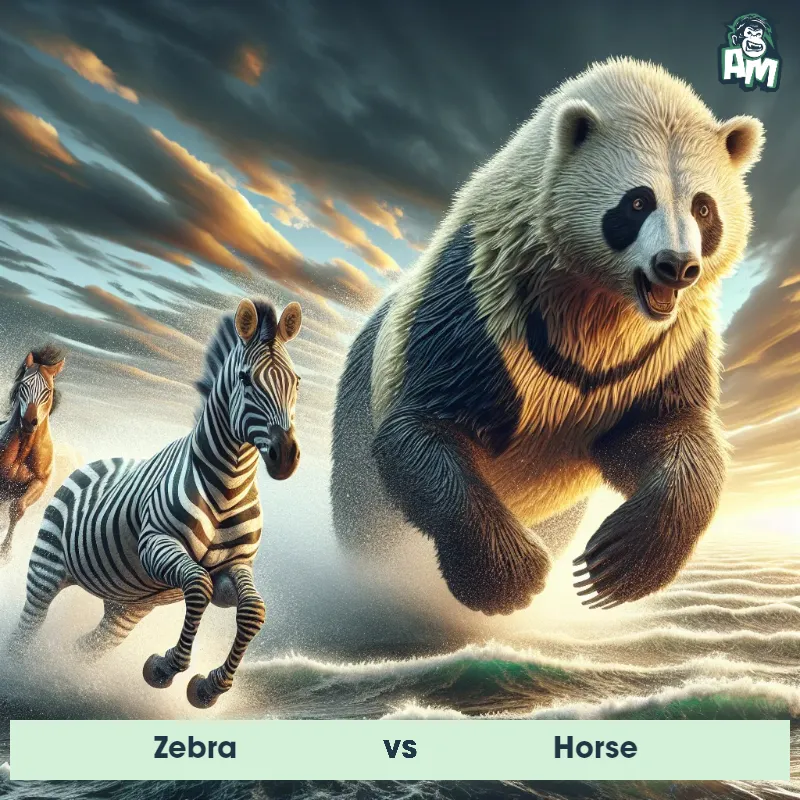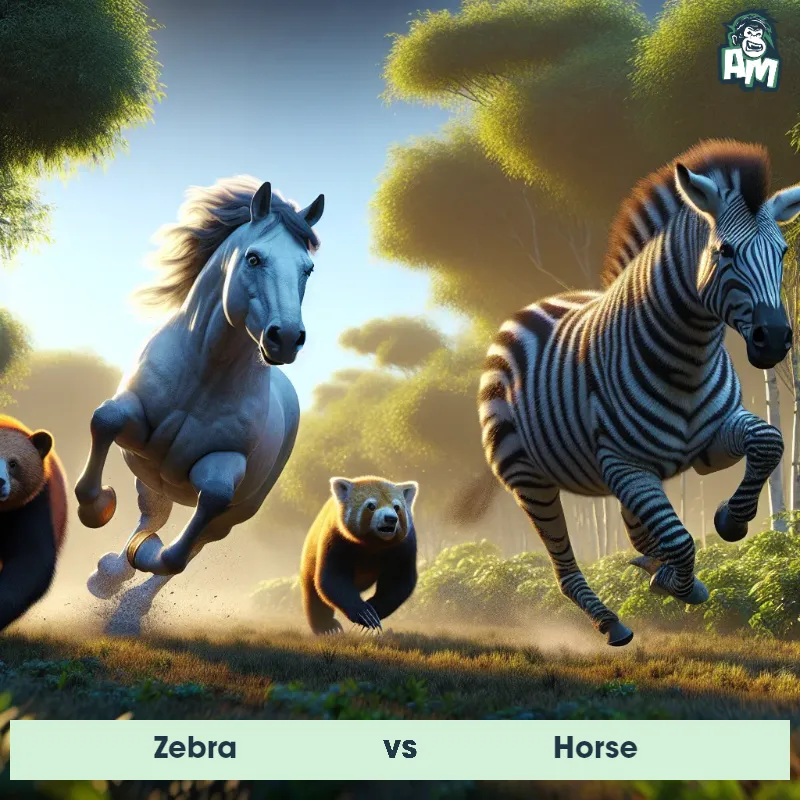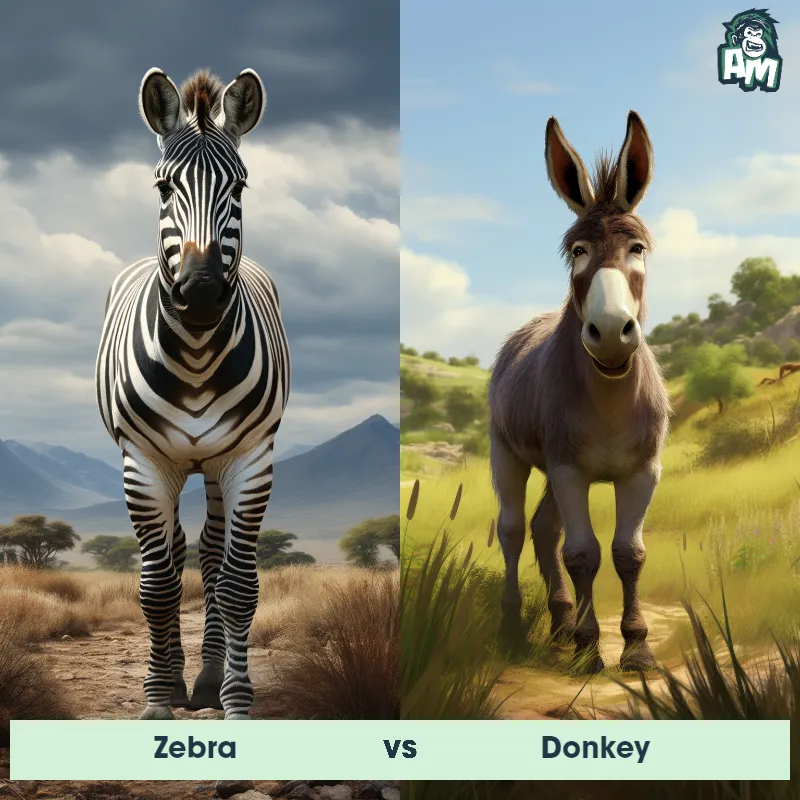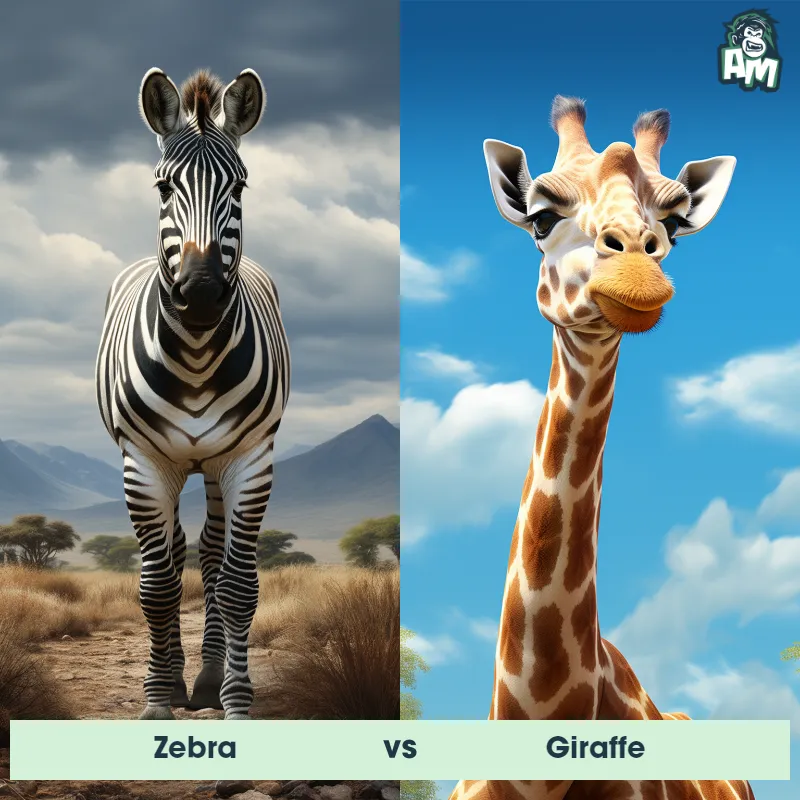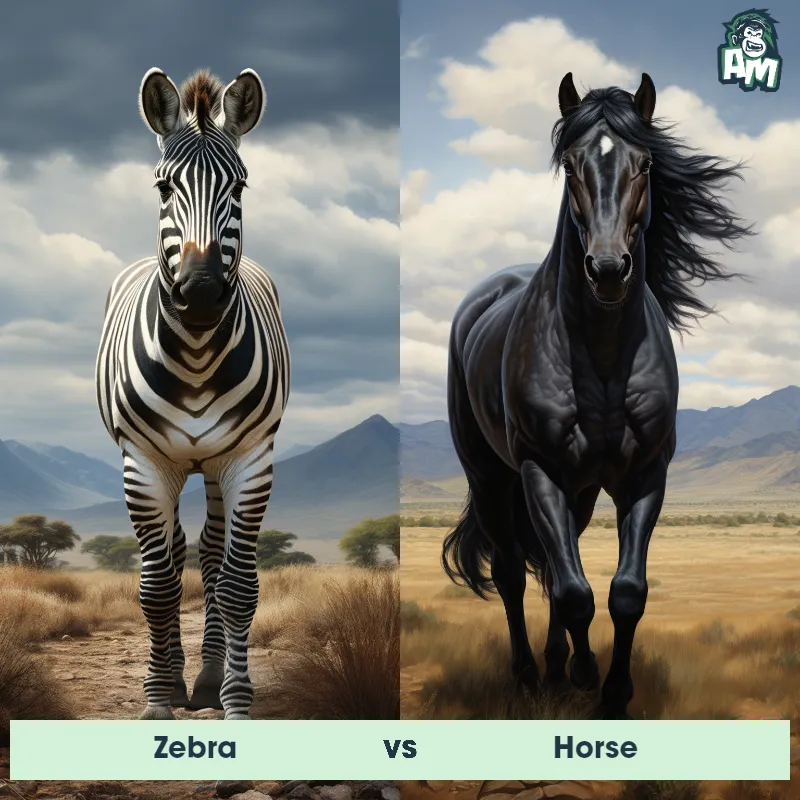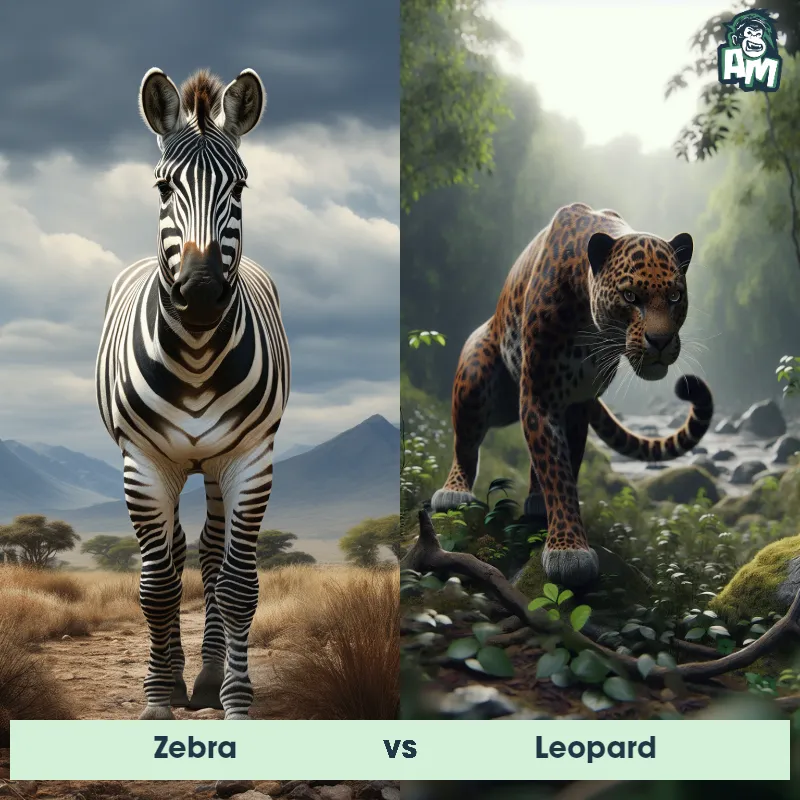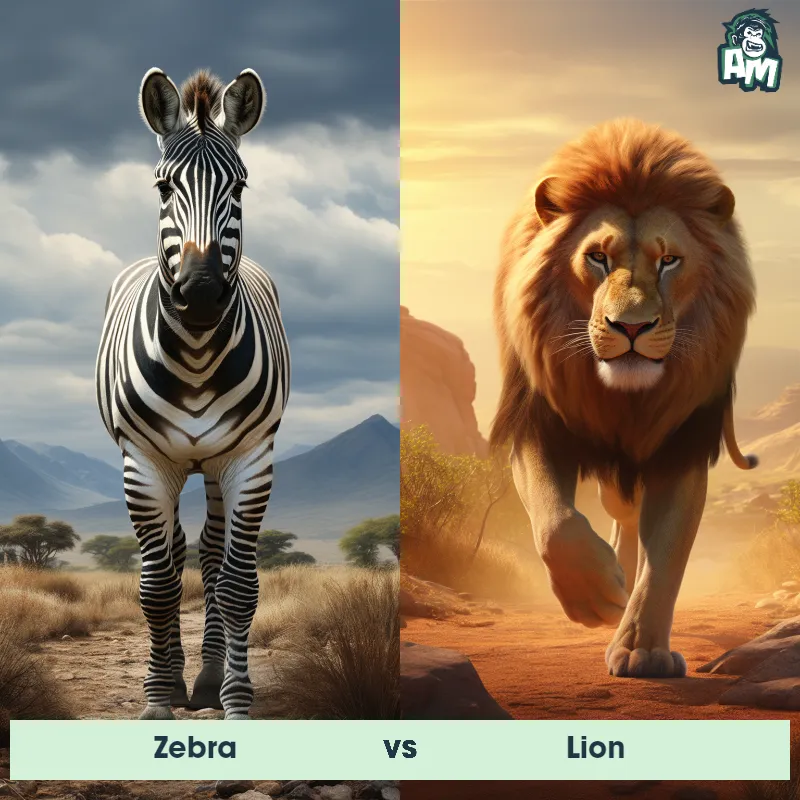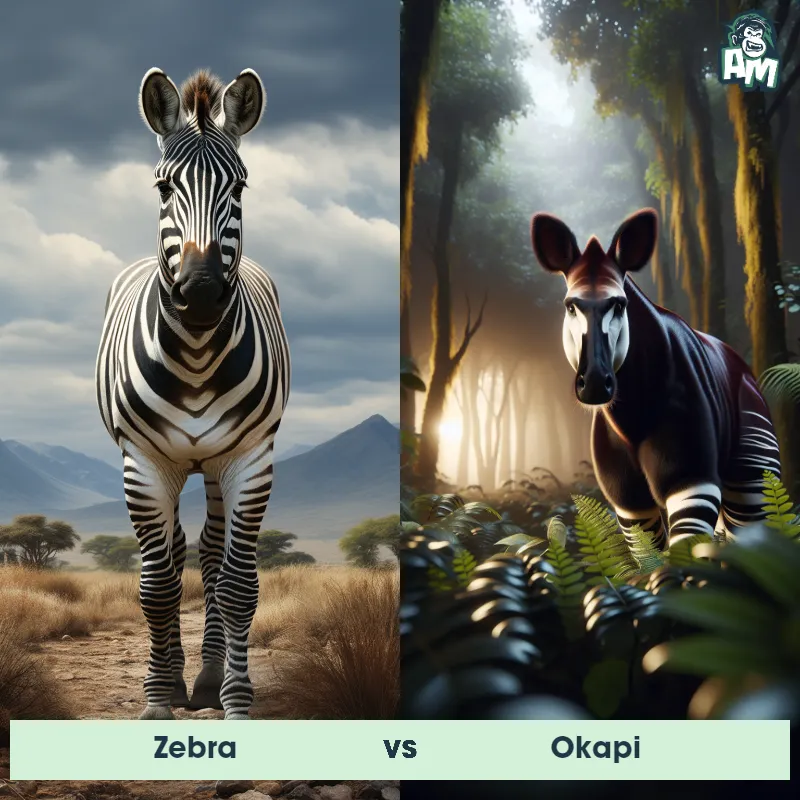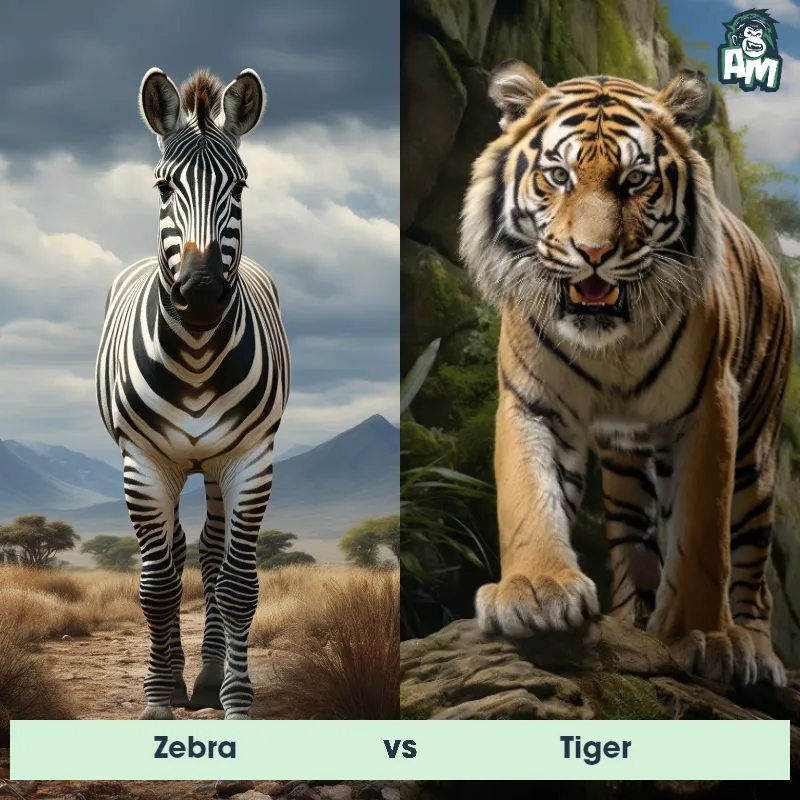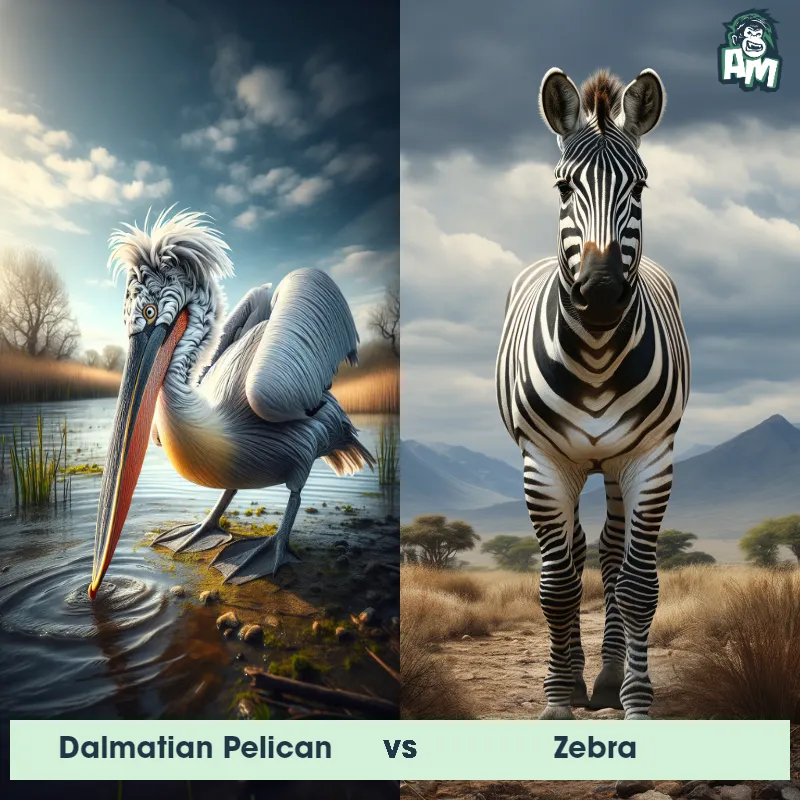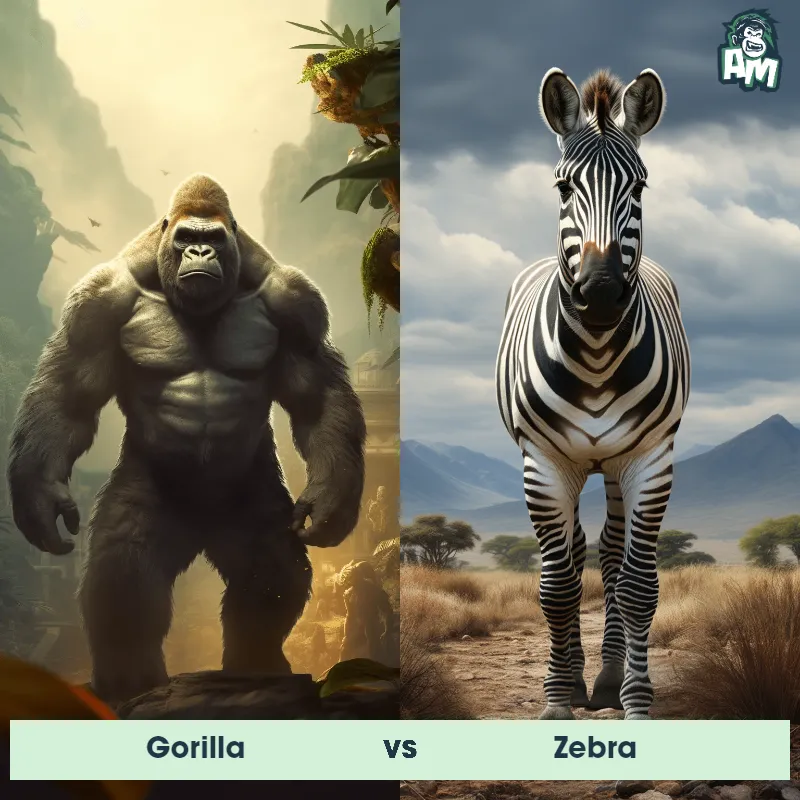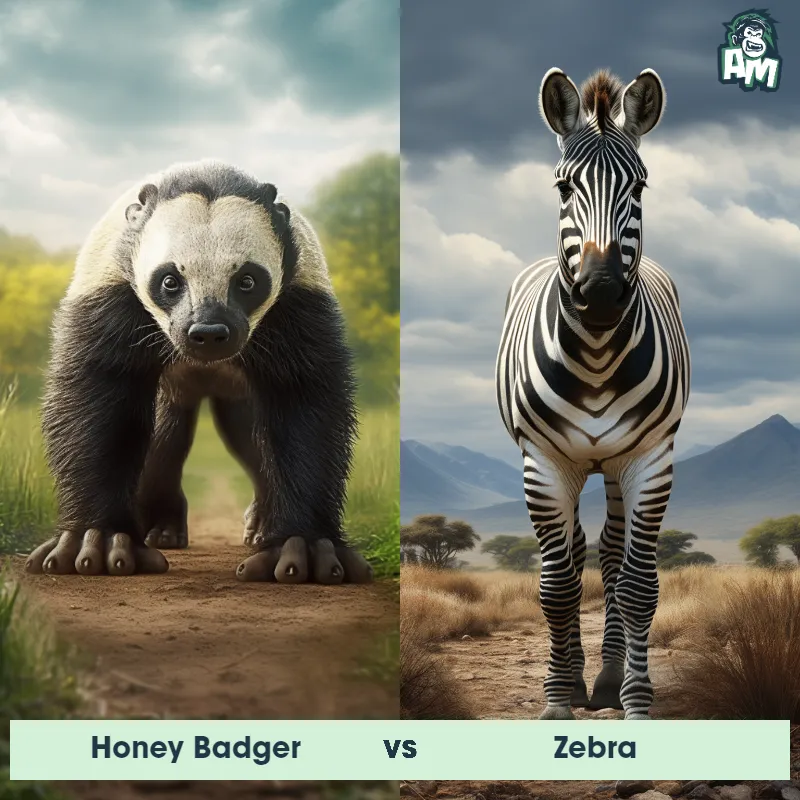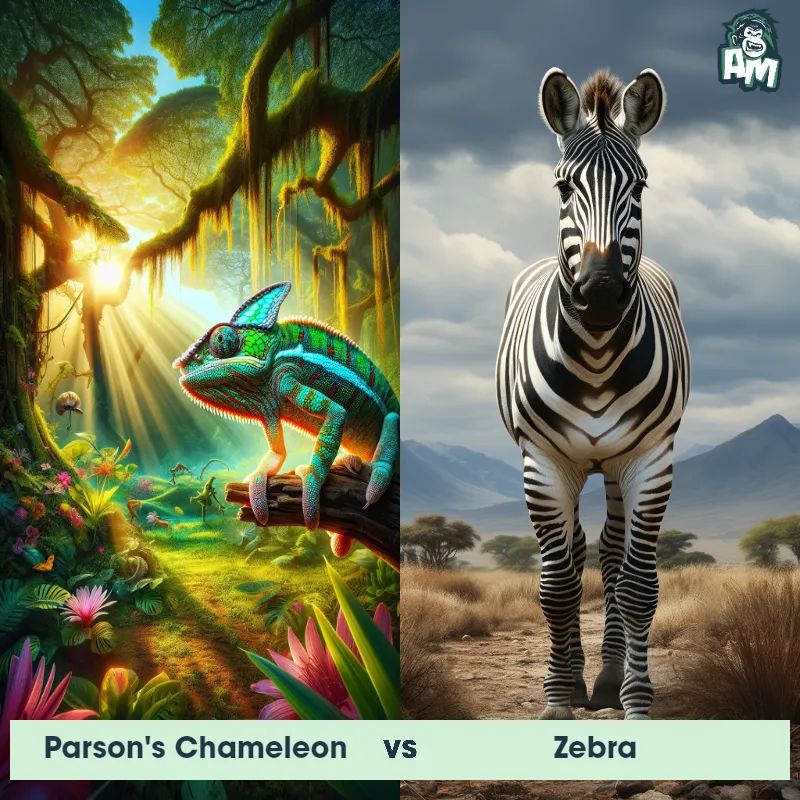The Zebra
The Zebra is a large herbivorous mammal that is native to the grassy plains of Africa. Known for their distinct black and white stripes, Zebras are social animals that live in large herds. These stripes not only make them easily recognizable but also serve as a form of camouflage, confusing predators and making it difficult for them to single out an individual Zebra. Zebras have a horse-like body shape with long legs, a relatively short mane, and a tufted tail.
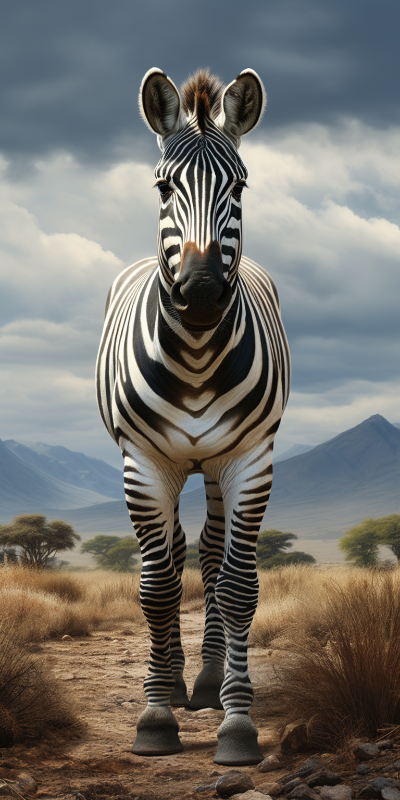
| Zebra | |
|---|---|
| Size | 3.5 to 5 feet tall at the shoulder (1.07 to 1.52 meters) |
| Weight | 440 to 990 lbs (200 to 450 kilograms) |
| Speed | 40mph (64km/h) |
| Key Strength | Speed and agility |
| Biggest Weakness | Lack of natural weapons (like claws or sharp teeth) |
| Scientific Name | Equus quagga |
| Family | Equidae |
| Habitat | Grasslands, savannas, woodlands, thorny scrublands, mountains, and coastal hills |
| Geography | Africa |
| Diet | Herbivore, primarily grazing on grasses, shrubs, herbs, and twigs |
| Lifespan | 25 years - 30 years |

The Zebra
The Zebra is a large herbivorous mammal that is native to the grassy plains of Africa. Known for their distinct black and white stripes, Zebras are social animals that live in large herds. These stripes not only make them easily recognizable but also serve as a form of camouflage, confusing predators and making it difficult for them to single out an individual Zebra. Zebras have a horse-like body shape with long legs, a relatively short mane, and a tufted tail.
Fun Fact: Zebras have a unique pattern of stripes, and no two individuals have the same pattern. Each Zebra has its own distinct arrangement of stripes, making them easily recognizable to others in their herd.
| Zebra | |
|---|---|
| Size | 3.5 to 5 feet tall at the shoulder (1.07 to 1.52 meters) |
| Weight | 440 to 990 lbs (200 to 450 kilograms) |
| Speed | 40mph (64km/h) |
| Key Strength | Speed and agility |
| Biggest Weakness | Lack of natural weapons (like claws or sharp teeth) |
| Scientific Name | Equus quagga |
| Family | Equidae |
| Habitat | Grasslands, savannas, woodlands, thorny scrublands, mountains, and coastal hills |
| Geography | Africa |
| Diet | Herbivore, primarily grazing on grasses, shrubs, herbs, and twigs |
| Lifespan | 25 years - 30 years |
Match Highlights
Zebra Matchups
We use AI to simulate matchups between the Zebra and other animals. Our simulation considers size, strength, and natural predatory behaviors to determine the most likely outcome.
Zebra: Diet, Predators, Aggression, and Defensive Behaviors
What do zebras eat?
Zebras are herbivores, meaning they primarily eat grass and other plant-based foods. They have a very selective diet, choosing only the most nutritious grasses and leaves to consume. They require a high intake of food due to their large size and constant grazing habits.
Do zebras have any predators?
Yes, zebras have several natural predators in the wild, including lions, hyenas, and cheetahs. These predators often target young, weak, or injured zebras in order to catch their prey successfully. Zebras rely on their speed and agility to evade predators and protect themselves and their young.
Are zebras aggressive?
Zebras are not typically aggressive animals towards humans or other animals, but they can exhibit aggressive behavior when feeling threatened or cornered. They may kick, bite, or use their powerful legs to defend themselves if they perceive a threat.
Do zebras fight?
Zebras have been known to fight amongst themselves, especially during mating season or when establishing dominance within a herd. These fights can involve biting, kicking, and vocalizations to establish hierarchy and territory.
How do zebras defend themselves?
Zebras primarily depend on their speed and agility to defend themselves from predators. They can run at high speeds in a zig-zag pattern, making it difficult for predators to catch them. Additionally, zebras may kick or bite if they feel threatened, using their strong legs and teeth as weapons.
What is the biggest weakness of zebras in a fight?
One of the biggest weaknesses of zebras in a fight is their lack of physical strength compared to larger predators such as lions. While zebras are quick and agile, they may struggle to overpower a predator in a direct confrontation. Additionally, their herding behavior can make them vulnerable to coordinated attacks by predators.
Fun Fact: Zebras are excellent runners and can reach speeds of up to 40 miles per hour. They use their speed as a defense mechanism to escape from predators such as lions and hyenas.
Fun Fact: Zebras have a keen sense of hearing and can rotate their ears in different directions, allowing them to listen for any potential danger around them. This ability helps them detect predators even in the darkness of the African night.



